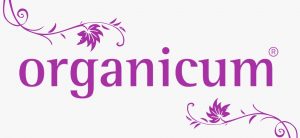 Everything in the universe continues to prevail in certain integrity and balance.
Everything in the universe continues to prevail in certain integrity and balance.
However, although we know that living things on earth were created in an extraordinarily synchronous manner, why do we do our best to disrupt this harmony?
Nothing has its original texture anymore.
The world has become almost unbearable for us. We have polluted the earth so much…
Stone, soil, water, air.
All living things in nature are fighting for their lives to avoid extinction.
We take the purest form of everything from the soil and then send it back to whatever wears it down the most.
The integrity of man and nature, established in the natural order, is preparing for self-destruction. Every negative radiation and chemical substance we send to the soil appears as a preparation for extinction that we make for ourselves.
All vegetables and fruits covered with GMO and pesticide residues, which prepare the environment for the activation of diseases, threaten our health and aesthetics in the long run.
We often forget that plants are living organisms. We get sick quickly and our life quality suffers.
There is such a strong interaction between the soil and plants that we pour pesticides to get more efficiency and the human body.
Organic life is to live healthy, young and happy without getting sick.
To regain our energy, we need an organic, pure, chemical-free world. Because organic plants have a fully harmonious effect on the body.
The body naturally makes this definition. If the herbal products you drink or use are in a structure that has not been chemically treated, a much faster regeneration begins in the cells.
The power to be combined with real healing energy in the botanical’s plantation is hidden in the fact that synthetic fertilizers are not used in the soil.
Plants that will form organic nutrients or cosmetics are grown according to predetermined production standards.
Organic certified wheat, barley etc. such as cereals, other crops, vegetables and fruit-bearing trees should be grown without the use of conventional (which can be permanent in the soil and nature especially aldrin, chlordane, DDT, dieldrin, endrin, heptachlor, hexachlorobenzene, mirex, toxaphene) insecticides.
Because these chemicals can easily turn into dust or gas, mix with underground and surface waters as well as the atmosphere and travel hundreds of kilometers.
These chemicals can accumulate up to 70,000 times their initial concentration in biological systems and can maintain their harmful effects for years.
These pesticides are much larger than their target group and pose a danger to a group of living organisms that includes humans. They cause endocrine system disorders, cancer, immune system diseases, nervous system diseases, infertility, and birth defects in humans. These synthetic substances also cause great harm to birds, fish, and other living organisms in nature. Inorganic fertilizers are another group of chemicals that are prohibited to be used in organic agriculture. Artificial fertilizers containing phosphate cause the accumulation of arsenic, cadmium, and uranium in the field soil over time, and these elements threaten human health with nutrients. In addition, the production technologies of artificial fertilizers can be harmful to the environment during their transportation and purification from the mines.
Organic fertilizers intended to be used in organic agriculture; solid animal manure, animal manure and water mixtures, fertilizers formed by worm mixtures fed by kitchen and household wastes (vermicompost), peat (moss), wastewater and guano.
Organic products should never be exposed to ionizing radiation before reaching the consumer, and synthetic additives such as coloring, thickening agents and GMOs should not be used during their preparation.
The Urgency of Organic Cosmetics
Cosmetics have an important place in people’s daily care habits without being noticed.
On average, a person uses at least a few cosmetic products each day. These are starts from toothpaste, perfumes, make-up, deodorants, soaps, hair care products, hair dyes, shaving foams, skin creams and other care products.
Most people think that they encounter very few problems from these products. However, dermatologists state that long-term use can cause many internal and external diseases that occur immediately or years later.
Hundreds of soap, shampoo and skin cream manufacturers describe themselves as natural and organic on the labels of the product.
In cosmetic products, commercial concerns like to increase shelf-life, increases synthetic raw materials and synthetic additives usage.
For example, rich foam, cleaning smell and long shelf life in shampoos and soaps are generally provided by surface-active synthetic chemicals. Moisturizers used in cosmetic products often contain chemicals such as petrolatum, a petroleum-derived gelatin-like substance, as well as silicone-based dimethicone, which is used in creams and gives the skin a velvety softness.
These are lubricants, humectants, preservatives, antioxidants, pharmaceutical agents, polymers, dyes and fragrances, homogenizing and thickening the mixture and about 80% synthetic based materials.
Since it has been determined that some of these synthetic cosmetic additives pose a risk of asthma, allergies, skin rashes and skin, breast, uterine and ovarian cancers after long-term contact, this issue has been under the spotlight by health institutions and consumer organizations all over the world in recent years.
Today, real organic plant and raw material mixtures are approved bypassing certification and other audits.
For these reasons, the use of products with organic production techniques that do not have adverse effects on the baby and human health has gained much more importance in recent years.
For these reasons, organic production techniques applied products that are not affected to babies and human health.
Overview of Organic Products in the World
Increasingly, organic production is encouraged and regulated by many countries. The USA, the European Union, Australia, Japan and other countries have linked the producers’ ability to offer organic products to the market with “Organic Certification”.
In the past, organic farming was limited to products specific to small family-run farms and sold in village markets, but in recent years it has become much more common and consumed. While the conventional food market has increased by 2-3% annually in the USA in recent years, the organic food market has grown by 17-20%. Big companies switch to the organic market every year.
Whether any product that reaches the consumer is organic or not can only be verified by the signs on it showing that it is certified organic.
Organic certified cosmetic products: Do not contain prohibited substances specified in regulations and approved lists.
Does not contain GMOs
No pesticides or hormones are used during production.
No animals are used in final product testing
They are processed without ionizing radiation
They are formulated with organic certified herbal inputs.
This post is also available in: Turkish







